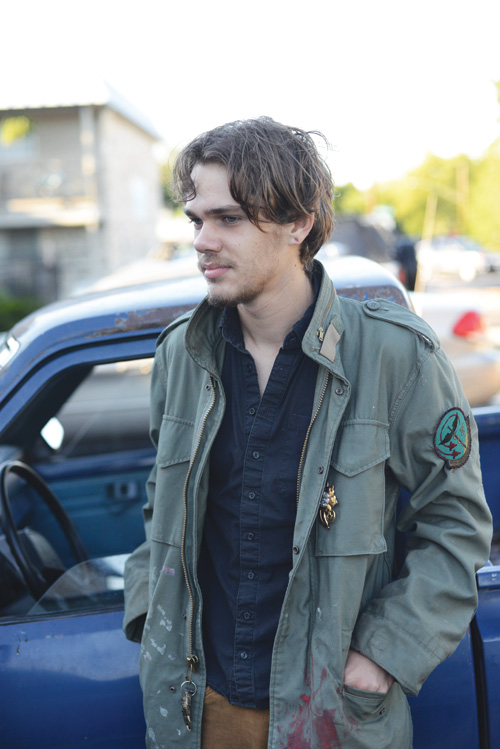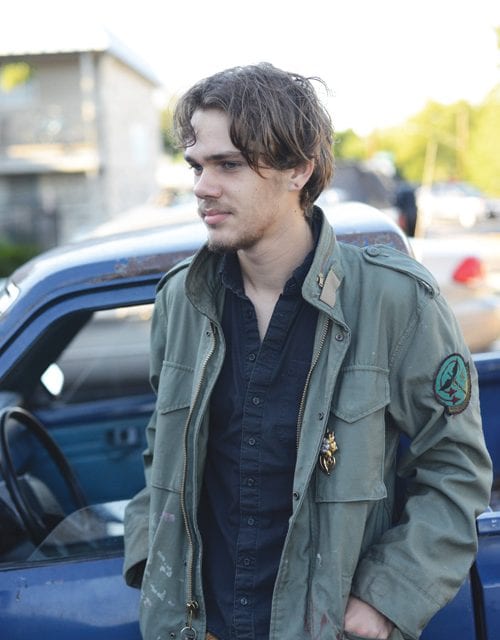A Texas filmmaker’s daring 12-year project, ‘Boyhood’ grows up

POST PUBERTY | Many child actors talk about growing up onscreen, but Ellar Coltrane did so literally, from 5 to 18, in Richard Linklater’s ambitious epic of the ordinary, ‘Boyhood.’
ARNOLD WAYNE JONES | Executive Editor
 If you’ve heard anything about Boyhood, you’ve probably heard that, while it’s not a documentary, it was filmed over a span of a dozen years, with the leading actor, Ellar Coltrane, growing in the role from ages 5 to 18. But for anyone familiar with the work of Texas filmmaker Richard Linklater, the idea of a long-form project isn’t so strange.
If you’ve heard anything about Boyhood, you’ve probably heard that, while it’s not a documentary, it was filmed over a span of a dozen years, with the leading actor, Ellar Coltrane, growing in the role from ages 5 to 18. But for anyone familiar with the work of Texas filmmaker Richard Linklater, the idea of a long-form project isn’t so strange.
This is the man who cast two virtual unknowns (Ethan Hawke and Julie Delpy) in the talky romance Before Sunrise, then reteamed with them nine years later (playing the same characters nine years later) in Before Sunset, and once again another nine years later for 2013’s Before Midnight. Linklater has the patience of a sculptor — he’s raised deferred gratification to the realm of its own art.
So yes, the gimmick of Boyhood is clever, and even if you don’t believe reviews, you should probably see it just to appreciate its scope (Linklater is a shoo-in for a best director Oscar nomination). But what’s truly brilliant about what the film does is … it doesn’t do much. And yet it does everything.
That’s not really a paradox — at least it doesn’t feel like it, once you see the film. The camera opens on young Mason’s (Coltrane) face staring dreamily at the clouds. Mason has an older sister (Lorelei Linklater, the director’s actual daughter) and lives with his mom (Patricia Arquette); his absentee father (Hawke) visits when work brings him to Texas. Mason is an average kid: Introspective but not anti-social, smart but not a genius, likeable but not one of the cool kids. He eventually experiments with drugs (a little) and develops a passion (photography) and gets bullied and gets laid, but it’s all so … so … ordinary. It is, simply, what boyhood is for 90 percent of us.
There’s not a scene in the film that is Big Picture Meaningful in the annals of cinema, or even in the life of the film itself, but for me, the turning point — the moment what you “get” what Linklater’s overarching mission is — occurs when Mason is 15. He’s heartbroken by a promise his dad didn’t keep, one Dad doesn’t even remember making (and insists he never did). But there’s not a second — not one! — where I doubted Mason’s recollection, where I knew exactly how he was feeling. The broken promise wasn’t the betrayal; the casual way it was not even acknowledged was. Every kid has had that experience, when he realizes an off-handed comment that shaped his desires was made in jest or thoughtlessly. It’s tremendously painful, that disrespect, that understanding that truth is a razor’s edge that can cut deeply. It’s the ache of growing up, the loss of innocence when tears would accomplish nothing even while the hurt is unfathomable.
Boyhood is a lopey story, which ventures closest to cliché with the parade of drunken losers mom brings home, but it never devolves into melodrama — it doesn’t have time, even though it clocks in at nearly three hours.
Confrontations are moved past, relationships abandoned, new ones formed. Linklater doesn’t tell it all from Mason’s perspective — there’s no voice-over or POV shots — so we don’t filter it through the lens of the unreliable narrator. The film is more like glimpsing the intimate moments of lives fully lived, without the uncomfortable feeling of being a voyeur. It’s precisely the film’s clear-eyed honesty that elevates it. And the decade-plus it took to explore that honesty really sends a shudder through you. Boyhood is a masterpiece.
This article appeared in the Dallas Voice print edition July 18, 2014.










